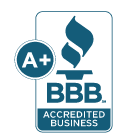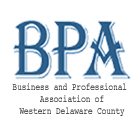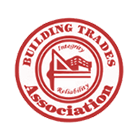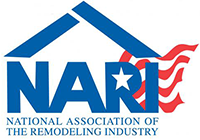Are you applying for a Delaware County building permit?
Tri-County General Contracting can handle all your Delaware County building permit application needs. Want to know about the residential permit application? Here is information on the process from a local builder. I’ve been serving southeastern Pennsylvania for over 40 years.
The Delaware County Building Permit Process
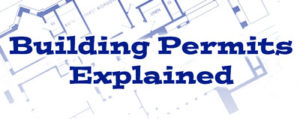 The first step of many home renovation projects may start with checking out materials and prices at a big box store. You’ve found the look your going for from a TV show or the latest remodeling website, and would love a high quality update to your home. You’ve tried a few DIY home remodeling projects in the past and are ready to hire a professional. It’s time to choose a contractor and start pulling building permits. What do you need to know about pulling building permits as a home-owner? or maybe even as a DIY’er?
The first step of many home renovation projects may start with checking out materials and prices at a big box store. You’ve found the look your going for from a TV show or the latest remodeling website, and would love a high quality update to your home. You’ve tried a few DIY home remodeling projects in the past and are ready to hire a professional. It’s time to choose a contractor and start pulling building permits. What do you need to know about pulling building permits as a home-owner? or maybe even as a DIY’er?
Some things to know about Delaware County PA’s building permits…
- There are many different types of residential building permits with different requirements.
- There are many different applications for building, plumbing, and electrical.
- There are codes that must be followed in order to successfully close a permit.
- There are different code inspections throughout a remodeling or building project to enforce code requirements.
- Licensed and Insured contractors may pull their own permits for your job – or you can pull the permits yourself.
- In Pennsylvania home-owners are legally allowed to pull permits, complete work, and have work inspected and permits closed.
- Watch out for remodeling companies who will not work under permit or refuse to pull they’re own permits. While there are some reasons home owners may decide not to permit or may not be required to permit, all licensed contractors should be ready and able to work with Delaware County Code Enforcement and pull permits themselves.
How to Apply for Permits
- Contact your insurance company and make sure you are covered during all phases of construction. If you are doing any parts of the remodeling yourself make sure they know that. Make sure your building materials are covered for theft.
- Make sure your contractor is appropriately registered and insured. Hopefully by this time you have hired us, so there is no need to worry. We have over 40 years of satisfied customers and the testimonials to match. If you are doing a DIY project it’s time to start reading the code books. Home contractors must be registered with the state and you can check here on the state’s home improvement contractor search. http://hicsearch.attorneygeneral.gov/
- Go to your local township building and go to the building codes desk. Application prices and requirements are different for each town, but codes followed are usually statewide or national.
- If using a plumbing or hvac contractor it is best to have them deal with the permits directly as it will insure they are legally able to operate in your township.
- There is no requirement for residential electrician licensing in PA so many electrical contractors are just faking their qualifications. For electrical it is best to ask if the electrician is commercially licensed and check their license is up-to-date in your area. Get referrals. Commercial electrical licensing includes testing so hiring a commercially licensed electrical contractor ensures standards.
- Home contractor licensing is just a registration process that anyone can pay for, there is no residential remodeling testing or licensing in PA. Make sure you do your due diligence when choosing a home remodeler, we can give you as many referrals you need to trust Tri-County is your best choice.
- Don’t let the permit process deter you from your remodel. It can sometimes get troublesome to go through, but eliminates the problems of un-permitted improvements when selling your home and getting a U&O (Use and Occupancy) permit.
How to Follow the Building Code and Schedule Inspections
- Pennsylvania has a UCC or Unified Construction Code and Townships may elect to enhance this code to be more stringent on requirements at will. All codes are generated for the IBC 2009 or 2012 and can be found online here: http://publicecodes.cyberregs.com/icod/.
- While Tri-County knows the building codes inside and out, you may find them hard to navigate. If doing a DIY project we recommend meeting with the inspectors throughout the project to make sure you are correctly building out your project to code.
- Code inspections happen throughout a project. Make sure you know the schedule. Inspectors can make you rip open walls or tare down structures if you haven’t had the appropriate inspections.
- Electrical, plumbing, and hvac inspections include a rough inspection and final inspection. There are many requirements for strapping, stapling, size, and positioning of access and bore holes. These codes have to be closely followed. We’ve seen jobs where entire floor structures have had to be replaced because un-knowing home owners or “contractors” drilled holes in the wrong places. Electrical inspections are done by outside agencies to minimize the townships risk.
- When in doubt ask the codes inspector to come out and check out your project. Most inspectors will be nice and willing to help you through the project. Many inspectors just love showing off their newest knowledge of the trade. Inspectors learn by joining an ongoing education program.
- Hire Tri-County General Contracting to professionally manage all building permits and residential codes for you. Enjoy your newly updated home without having to worry about a single permit or code issue from start to finish.
Residential Code Pitfalls for the DIY’ers
 We’ve seen a good bit of mistakes made and met quite a few hard to impress inspectors. Here are a few pitfalls to avoid if dealing with permits.
We’ve seen a good bit of mistakes made and met quite a few hard to impress inspectors. Here are a few pitfalls to avoid if dealing with permits.
- Don’t be rude to anyone in the township or codes department even if they are.
- Township workers don’t care how expensive application fees have gotten and have no control over pricing. While we believe it is crazy that some townships want permit money to allow you to do a simple thing like painting your home. Keep a level head is essential or you could be waiting a long time for approval.
- Code inspectors come in all personalities. If you get one with a bad demeanor you are best to keep being nice no matter what. Code inspectors, just like the police, have power over their enforcement. It’s best to keep a respectful attitude so you don’t get stuck waiting weeks for inspections. Arguing with a n inspector is a sure way to get hammered for every little mis-step in your project.
- Realize it may take some time to schedule inspections or receive approvals, but stay diligent in keeping up on progress.
- As they say, “the squeaky wheel gets the grease”. If it is taking too long to get your permit, call the office to check on it every other day. Just remember to be nice. If an inspector gives you too long of a time frame to get out to your job, tell them how important your schedule is. Make it known that it is going to cost you money if your job is held up. Just like most of government, the township offices can be slow and you may need a bit of coaxing to get a job completed in a timely manner.
- Know that we live in a frost area so building is very different from down south. Projects involving ground contact may not even be able to be started in freezing months, so make sure you check on the requirements. If the ground under a footer is not above freezing and temperature checked by an inspector before concrete pouring, it may have to be ripped up and replaced.
- This costly error has been made by many home owners in winter months. With the use of salt hay, footer areas can be kept above freezing temperature until concrete is delivered.
- Planning your structure is more than just the design process. Windows, insulation, wall and ceiling framing, and other structural requirements have to fall into energy efficiency minimum standards as part of the overall building code.
- To find out what you need to be in compliance, use this link to REScheck: https://www.energycodes.gov/rescheck.
- REScheck will allow you to input different materials and structural dimensions and you can make alterations to stay in compliance.
- Remember insulation requirements also need certain wall, floor, and ceiling framing dimensions. Example. You can’t fit standard R-19 insulation in a 2×4 wall. You may have to upgrade to 2×6 walls or get more expensive triple paned windows to meet overall energy saving requirements.
- Don’t close your walls unless the inspector says you are ready. We’ve seen many people forget to get a rough electrical permit and drywall up a wall before inspection.
- Electrical inspections are completed by outside agencies. Your township can supply you with a licensed agency that is local and reliable in the area. Don’t do any electrical unless you fully understand the dangers and have had the appropriate training.
- Get multiple plumbing contractor estimates. Plumbing prices swing wildly, with some companies charging in the $125+ an hour range. We consider this gross overcharging and stay diligent in reducing our customers plumbing costs. Try and get a price for the entire project and stay away from hourly pricing if available.
- Don’t get in over your head with your remodel. Material costs have more than doubled in the last decade. Know you costs and budget before you start. Do your due diligence, most estimates take us a few days to complete with many hours of work involved – it will take the average home owners more than a few hours to figure out the cost of their project. Permits can be a costly part of your job in certain townships and municipalities.
- Call Tri-County and get your job done professionally to avoid the many pitfalls of a DIY project and your Delaware County Building Permit!
Links to Obtain Township Building Permits in Delaware County PA


